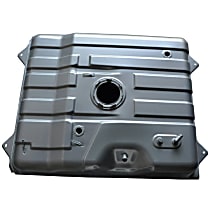{
"lazyNodes": false,
"abFitnotesFlag": false,
"abCrawlReviews": false,
"productOptionsCookie": false,
"orderDelayFlag": false,
"skipSessionCookie": false,
"covidMessage": false,
"fullTitleCookie": false,
"nrLoggerCookie": false,
"checkoutReviewCookie": false,
"productOptionSeqCookie": false,
"maintenanceFlag": false,
"bufferETACookie": false,
"multiShippingDiscountFlag": false,
"newFitmentFlag": false,
"surveyOptInFlag": false,
"crossSellFlag": false,
"skuMappingFlag": false,
"paySplitCookie": false,
"callDisableFlag": false,
"zipPaymentFlag": "u",
"hassleFreeReturn": false,
"lifetimeReplacement": false,
"cpn_off": false
}Need Help? Call Us1-866-529-0412
2011 GMC Savana 1500
2011 GMC Savana 1500 Fuel Tanks
Refine by:
Shop Catalog
Showing 1 - 1 of 1 results
Sort by:
Part Number: LILCPU50
Guaranteed to Fit
$1,182.49
Vehicle Fitment
- 2011 GMC Savana 1500 Base 6 Cyl 4.3L Rear, OE # 20969743
Product Details
Recommended Use : OE ReplacementProduct Fit : Direct FitCapacity : 55 gallons / 208 litersMaterial : Galvanized SteelColor Finish : PaintedSeries : Liland Fuel TankQuantity Sold : Sold individuallyReplaces OE Number : 20969743Warranty : No warrantyProp 65 Warning :
![]() WARNING: This product can expose you to chemical which is known to the State of California to cause cancer and birth defects or other reproductive harm. For more information go to www.P65Warnings.ca.gov.
WARNING: This product can expose you to chemical which is known to the State of California to cause cancer and birth defects or other reproductive harm. For more information go to www.P65Warnings.ca.gov.
Page 1 of 1 | Showing 1 - 1 of 1 results
Popular Products

LilandLiland Fuel Tank Fuel Tank, 55 gallons / 208 litersManufacturer #CPU-50
( Reviews) Questions, Answers
LILAND OE REPLACEMENT FUEL TANKS
With their OE-quality fit and functionality, LILAND’s OE replacement fuel tanks are ready to restore your import or domestic vehicle to its proper working condition. Backed by its 35 years of industry exp...
Product Questions & Answers
Q:Will this tank fit on a 2014 Express 15 passenger van? The notes talk about cutaways. Show Less
Joe L.
A:BEST ANSWERHi Joe,
Please check the OEM number of your fuel tank. this part has an interchange of Oe # 20969743. Show less
Andrew B.
5 Questions, 1 AnswerView all Q&As >



